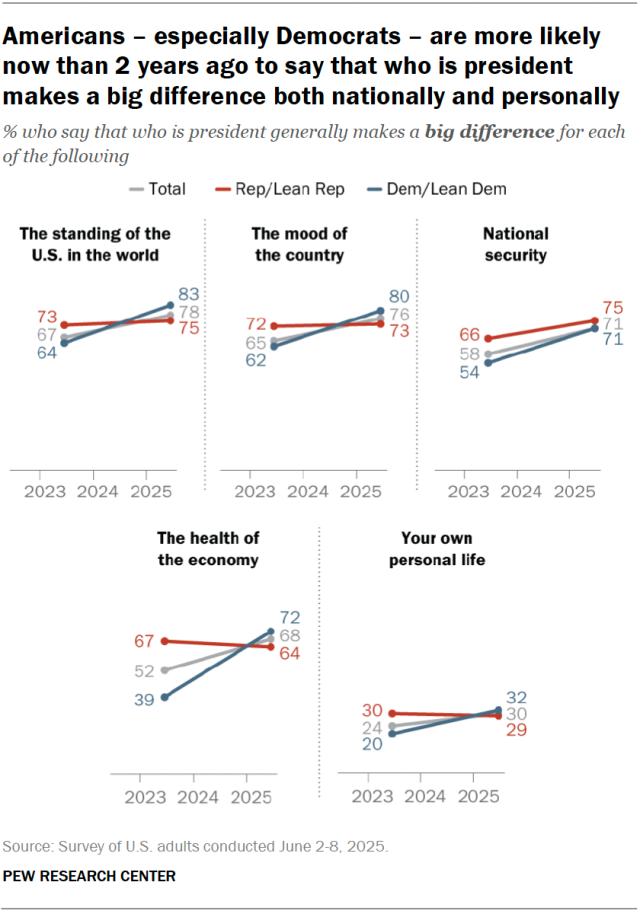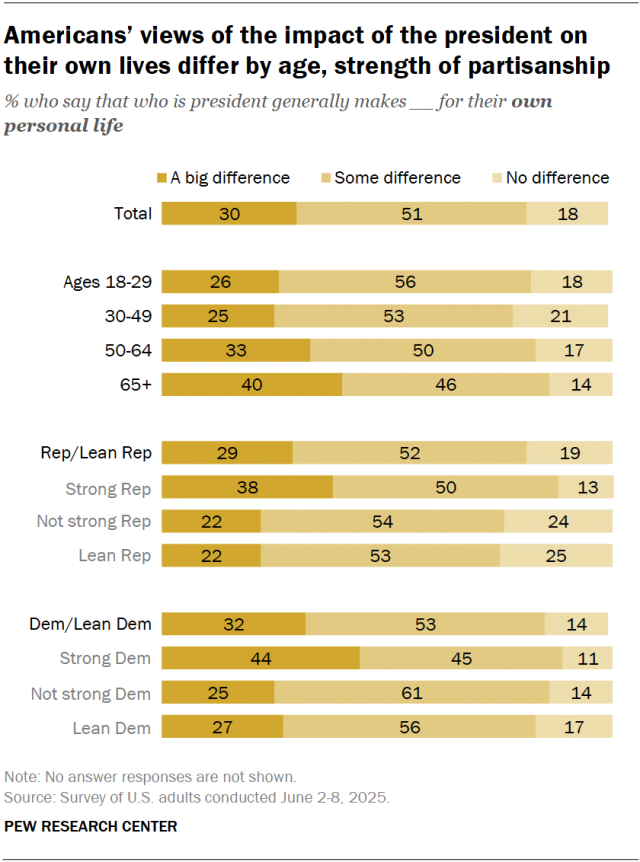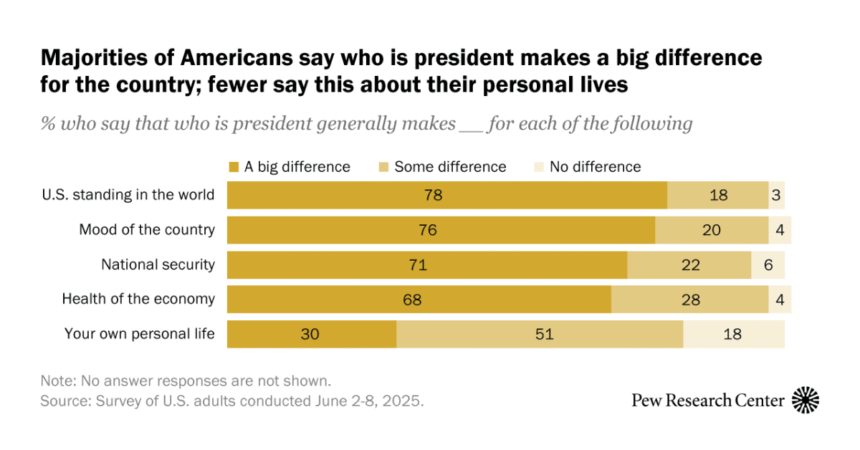Americans widely say that who the president is has a large impact on the country overall but a more limited impact on their own personal lives, according to a new Pew Research Center survey.
Wide majorities of U.S. adults say who is president makes a big difference for:
- The United States’ standing in the world (78%)
- The mood of the country (76%)
- National security (71%)
- The health of the economy (68%)
Far fewer Americans (30%) say who the president is makes a big difference in their own lives. Another 51% say who the president is makes some difference in their lives, while 18% say it makes no difference.
Compared with two years ago, more Americans now say the president has a big impact on both national issues and their personal life.

This is particularly true among Democrats and Democratic-leaning independents. They are now far more likely to say that who is president makes a big difference for:
- The United States’ standing in the world (83% now vs. 64% in 2023)
- The mood of the country (80% vs. 62%)
- The health of the economy (72% vs. 39%)
- National security (71% vs. 54%)
Majorities of Republicans and GOP leaners also say that who is president generally has a big impact on these areas. But their views have shifted less than Democrats’ have since 2023.
How much of an impact does the president have on people’s personal lives?
Some Americans are more likely than others to say that who is president makes a big difference in their lives.
Views by age

Older adults are more likely than younger ones to say that who is president makes a big difference in their lives. Four-in-ten Americans ages 65 and older say this, compared with 33% of those 50 to 64, 25% of those 30 to 49 and 26% of those 18 to 29.
Views by party
Similar shares of Democrats (32%) and Republicans (29%) say the president makes a big difference in their personal lives. (These shares include those who lean to each party.)
However, strong partisans in both parties are more likely to say that who is president makes a big difference to them personally. For example, 44% of people who identify as strong Democrats say this, compared with 25% of Democrats with weaker partisan ties and 27% of those who lean toward but don’t identify with the Democratic Party. A similar pattern appears among Republicans.
Note: Here are the questions used for this analysis, the topline and the survey methodology.











